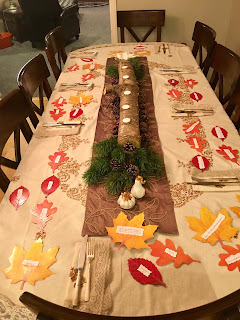The coaches for both teams ask that their players arrive at least a half hour before the game starts. Once we enter the gym, whether home or away, the first thing that we do is scan the crowd to find a familiar face. Usually we are not the first family to get there, one of Our Boys will find a teammate, and we all climb into the bleachers to sit next to our friends. My Wife was reflecting on this at a recent game and mused out loud, "This is just like high school. Whenever you walked in to the gym for a game, you always looked up into the crowd to find your friends."
I think about the number of times the students in our schools walk into rooms on a daily basis, seeking out a familiar face. Perhaps it's a classroom, the cafeteria, or even the gymnasium. When they walk into a room, they too are seeking a friend. Students and adults alike seek out spaces next to people they know.
We do this because our lives are about relationships, it is how we interact in the world. It doesn't matter how old we are, when we walk into a room, we look for those we know. We find the people in our lives who have connected with us, who have given our lives meaning, who we have walked with us on our journey. We look for those who add to and enrich our lives, whose very presence enhances our own experience, and with whom we grow as people in the world.
Too often in schools, I think we focus on the distinctions between adults and students. Certainly there is a power dynamic that naturally exists, given that we have spent more time on the planet than our younger counterparts. And we also need to acknowledge that often, we have much more in common with our students when it comes to relationships. I'm not suggesting in any way that we are equals. I am suggesting that at times, the basic needs of adults and students are quite similar.
Especially when walking into a room.
 |
| Photo Courtesy of Etsy |





















